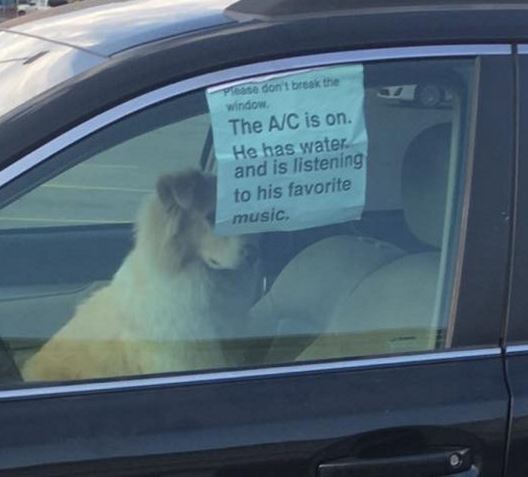Summer temperatures have been above average this year, according to The Weather Channel. But what does that mean for our furry friends? It means pet owners need to be extra cautious and pay close attention this summer.
The America Veterinary Medical Foundation (AVMF) has found that temperatures soar incredibly fast in your car. On a 70-degree day, your car can heat up to 115-degrees and on a 95-degree day, the temperature can reach 140-degrees. AVMF has also found that cracking the car window has little impact. Even if it’s just for a few minutes, your pet can experience severe injury, so please don’t leave your pet locked in a vehicle this summer.
If you see a dog that has been left in a hot car, take down the car’s information and call your local authorities. Leaving an animal locked in a hot car is not a punishable crime in Michigan, (although in 22 of the states it is). Some places even have Good Samaritans laws that allow bystanders to take steps to remove the animals if the authorities are not arriving quickly enough, but always check with your local laws before doing anything.
After removing the animal from the car, be sure to give the animal water to drink and take them to an air-conditioned area. Heatkills.org recommends giving the pet a bath in cool (but not iced) water so that their body temperature gradually decreases.
Another pet care tip for this summer is to make sure you’re not taking your pet for a walk when the pavement is too hot. If you can’t leave your hand on the ground for 5 seconds, it’s too hot you walk your dog. This is important to remember because your pet has more sensitive paws than humans have feet (and humans also get to wear shoes). Instead, try taking your pet for a walk early in the morning or later at night when the temperatures are lower. You should also take water on your walks, for both you and your pet, and pay attention to when your dog is tired and either needs a break or wants to head home.
Take note of these signs, because they could mean your dog is experiencing heat stroke or hyperthermia. These are not all of the symptoms, but they are some of the most common.
- Excessive panting and drooling
- Fevers
- Thick saliva
- Uncoordinated movements
- Muscle tremors
- Seizures
- Irregular heartbeats
- Inability to produce urine
- Reddened gums
- Unconsciousness
If you keep these pet care tips in mind, you can have an enjoyable and safe summer with your pet.

